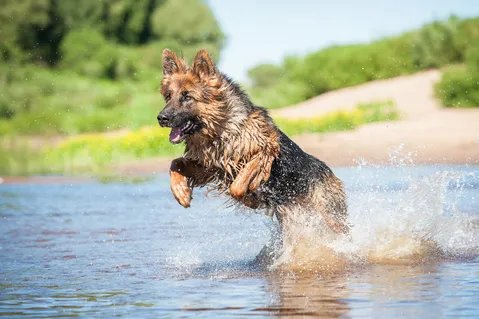Elbow Dysplasia Diagnostics and Treatment at Sirius Veterinary Orthopedic Center
At Sirius Veterinary Orthopedic Center, our team of specialists provides extensive care and ongoing support to our patients for a variety of conditions: this includes elbow dysplasia. If you believe your pet may be suffering from this condition, please do not wait to call us.

What Is Elbow Dysplasia?
Elbow dysplasia is not an uncommon condition. It occurs as a result of growth disturbances at a pet's elbow joint. The dog’s elbow is in the same position as people; between the wrist and shoulder. A variety of factors can contribute to the development of this condition. In some cases, it may be due to genetics. In other cases, forelimb fractures or growth plate injuries can occur, causing the underlying condition. In still other situations, the growth of cartilage, trauma to the area, and even a pet's diet can play a role in the development of this condition.
No matter what the cause is, canine elbow dysplasia occurs when there is a mismatch between the growth of the bones of the foreleg – the bones located between the wrist and the elbow. These bones are called the radius and the ulna. When one of them grows slower than the other, the other's shorter size leads to more pressure on the joint, which then causes damage to the cartilage in the elbow. It is possible for this mismatch to even cause fracture of the cartilage and underlying bone.
In situations where the ulna grows too slowly, the radius places upward pressure on the humorous (the bone in the upper arm). This can lead to developmental delays and deformities of the forelimb.
What Are the Signs and Symptoms of Elbow Dysplasia?
Could your pet be suffering from elbow dysplasia? Though it can impact any dog, this condition is common in larger breeds including German Shepherds, Golden Retrievers, and Rottweilers. Signs of the condition begin rather quickly, even at just five months of age. Look for:
- Limping or front limb lameness that worsens after exercise
- Lameness that does not go away completely even after rest
- Dogs are unwilling to exercise
- Reluctance to jump out of the car or go down stairs
- Swelling or pain around the elbow
How Does Your Veterinary Specialist in Omaha Diagnose and Treat Elbow Dysplasia?
To treat this condition, we'll perform x-rays and a full clinical examination that will show us whether the pet has pain when bending or extending the elbow fully. It's also important to see the dog walking to see the problem. In certain situation, advanced imaging (like CT) can be needed for an accurate diagnosis. Although we do not currently have CT of site we have access to imaging at a local facility.
Once diagnosed, we can then offer the proper treatment. There are a variety of medical and surgical treatment options available that will be devised specifically for your pet. Generally, surgery is performed through arthroscopy methods, which are minimally invasive and allow for less trauma and faster recovery. We generally treat this condition aggressively because it will worsen over time, creating the need for more invasive surgical procedures. Veterinary surgery may involve correctly the joint step, removing any fragments or loose cartilage, alteration of the elbow to shift the pet's weight from the impacted area, and, when necessary, joint replacement in severe situations. Front leg injuries like these do not improve on their own.
Why You Shouldn't Put Off Canine Elbow Dysplasia Care
Canine elbow dysplasia is fairly common in puppies as young as five to eight months. That's why it is important to bring your pet in for treatment right away when you notice any limping, pain, or limited movement. Early treatment not only reduces the likelihood of more advanced care but also reduces the pain your pet has to endure when forelimb injuries are present.
Schedule a Consultation with Our Orthopedic Veterinarian in Omaha for Care or Dog Surgery Today
Whether you know your pet needs dog surgery or you believe he or she may have elbow dysplasia, don't wait to get care. Visit your orthopedic veterinarian in Omaha for a full examination and the creation of a treatment plan for your pet. The sooner you bring your pet in, the better. Contact The Sirius Vet team for an appointment at 402-934-1332.
